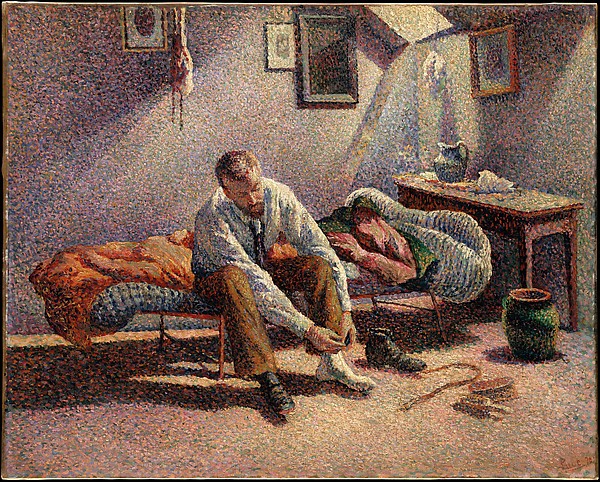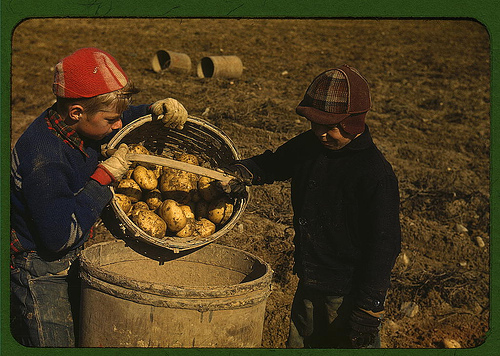
With Thanksgiving this week, many minds will be turning to the things they are grateful for. But here’s a twist on the subject not often explored: what do you do when others do not share your attitude of gratitude and your good turns go unappreciated? Our good friend William George Jordan offers up a veritable cornucopia of powerful thoughts.
“The Courage to Face Ingratitude”
From The Power of Truth; Individual Problems and Possibilities, 1902
By William George Jordan
INGRATITUDE, the most popular sin of humanity, is forgetfulness of the heart. It is the revelation of the emptiness of pretended loyalty. The individual who possesses it finds it the shortest cut to all the other vices.
Ingratitude is a crime more despicable than revenge, which is only returning evil for evil, while ingratitude returns evil for good…
Gratitude is thankfulness expressed in action. It is the instinctive radiation of justice, giving new life and energy to the individual from whom it emanates. It is the heart’s recognition of kindness that the lips cannot repay. Gratitude never counts its payments. It realizes that no debt of kindness can ever be outlawed, ever be cancelled, ever paid in full. Gratitude ever feels the insignificance of its installments; ingratitude the nothingness of the debt. Gratitude is the flowering of a seed of kindness; ingratitude is the dead inactivity of a seed dropped on a stone.
The expectation of gratitude is human; the rising superior to ingratitude is almost divine. To desire recognition of our acts of kindness and to hunger for appreciation and the simple justice of a return of good for good, is natural. But man never rises to the dignity of true living until he has the courage that dares to face ingratitude calmly, and to pursue his course unchanged when his good works meet with thanklessness or disdain. Man should have only one court of appeals as to his actions, not “what will be the result?” “how will it be received?” but “is it right?” Then he should live his life in harmony with this standard alone, serenely, bravely, loyally and unfalteringly, making “right for right’s sake” both his ideal and his inspiration. Man should not be an automatic gas-machine, cleverly contrived to release a given quantity of illumination under the stimulus of a nickel. He should be like the great sun itself which ever radiates light, warmth, life and power, because it cannot help doing so, because these qualities fill the heart of the sun, and for it to have them means that it must give them constantly. Let the sunlight of our sympathy, tenderness, love, appreciation, influence and kindness ever go out from us as a glow to brighten and hearten others. But do not let us ever spoil it all by going through life constantly collecting receipts, as vouchers, to stick on the file of our self-approval.
It is hard to see those who have sat at our board in the days of our prosperity, flee as from a pestilence when misfortune darkens our doorway; to see the loyalty upon which we would have staked our life, that seemed firm as a rock, crack and splinter like thin glass at the first real test; to know that the fire of friendship at which we could ever warm our hands in our hour of need, has turned to cold, dead, gray ashes, where warmth is but a haunting memory.
To realize that he who once lived in the sanctuary of our affection, in the frank confidence where conversation seemed but our soliloquy, and to whom our aims and aspirations have been thrown open with no Bluebeard chamber of reserve, has been secretly poisoning the waters of our reputation and undermining us by his lies and treachery, is hard indeed. But no matter how the ingratitude stings us, we should just swallow the sob, stifle the tear, smile serenely and bravely, and— seek to forget.
In justice to ourselves we should not permit the ingratitude of a few to make us condemn the whole world. We pay too much tribute to a few human insects when we let their wrong-doing paralyze our faith in humanity. It is a lie of the cynics that says “all men are ungrateful,” a companion lie to “all men have their price.” We must trust humanity if we would get good from humanity. He who thinks all mankind is vile is a pessimist who mistakes his introspection for observation; he looks into his own heart and thinks he sees the world. He is like a cross-eyed man, who never sees what he seems to be looking at. Confidence and credit are the cornerstones of business, as they are of society. Withdraw them from business and the activities and enterprises of the world would stop in an instant, topple and fall into chaos. Withdraw confidence in humanity from the individual, and he becomes but a breathing, selfish egotist, the one good man left, working overtime in nursing his petty grudge against the world because a few whom he has favored have been ungrateful.
If a man receives a counterfeit dollar he does not straightway lose his faith in all money—at least there are no such instances on record in this country. If he has a run of three or four days of dull weather he does not say “the sun ceases to exist, there are surely no bright days to come in the whole calendar of time.” If a man’s breakfast is rendered an unpleasant memory by some item of food that has outlived its usefulness, he does not forswear eating. If a man finds under a tree an apple with a suspicious looking hole on one side, he does not condemn the whole orchard; he simply confines his criticism to that apple. But he who has helped someone who, later, did not pass a good examination on gratitude, says in a voice plaintive with the consciousness of injury, and with a nod of his head that implies the wisdom of Solomon: “I have had my experience, I have learned my lesson. This is the last time I will have faith in any man. I did this for him, and that for him, and now, look at the result!”
Then he unrolls a long schedule of favors, carefully itemized and added up, till it seems the payroll of a great city. He complains of the injustice of one man, yet he is willing to be unjust to the whole world, making it bear the punishment of the wrong of an individual. There is too much vicarious suffering already in this earth of ours without this lilliputian attempt to extend it by syndicating one man’s ingratitude. If one man drinks to excess, it is not absolute justice to send the whole world to jail. The farmer does not expect every seed that he sows in hope and faith to fall on good ground and bring forth its harvest; he is perfectly certain that this will not be so, cannot be. He is counting on the final outcome of many seeds, on the harvest of all, rather than on the harvest of one…The more unselfish, charitable and exalted the life and mission of the individual, the larger will be the number of instances of ingratitude that must be met and vanquished…
We must ever tower high above dependence on human gratitude or we can do nothing really great, nothing truly noble. The expectation of gratitude is the alloy of an otherwise virtuous act. It ever dulls the edge of even our best actions. Most persons look at gratitude as a protective tariff on virtues. The man who is weakened in well-doing by the ingratitude of others, is serving God on a salary basis. He is a hired soldier, not a volunteer. He should be honest enough to see that he is working for a reward; like a child, he is being good for a bonus. He is really regarding his kindness and his other expressions of goodness as moral stock he is willing to hold only so long as they pay dividends. There is in such living always a touch of the pose; it is waiting for the applause of the gallery. We must let the consciousness of doing right, of living up to our ideals, be our reward and stimulus, or life will become to us but a series of failures, sorrows and disappointments…
Let us forget the good deeds we have done by making them seem small in comparison with the greater things we are doing, and the still greater acts we hope to do. This is true generosity, and will develop gratitude in the soul of him who has been helped, unless he is so petrified in selfishness as to make it impossible. But constantly reminding a man of the favors he has received from you almost cancels the debt. The care of the statistics should be his privilege; you are usurping his prerogative when you recall them. Merely because it has been our good fortune to be able to serve someone, we should not act as if we held a mortgage on his immortality, and expect him to swing the censer of adulation forever in our presence…
No good act performed in the world ever dies. Science tells us that no atom of matter can ever be destroyed, that no force once started ever ends; it merely passes through a multiplicity of ever-changing phases. Every good deed done to others is a great force that starts an unending pulsation through time and eternity. We may not know it, we may never hear a word of gratitude or of recognition, but it will all come back to us in some form as naturally, as perfectly, as inevitably, as echo answers to sound. Perhaps not as we expect it, how we expect it, nor where, but sometime, somehow, somewhere, it comes back, as the dove that Noah sent from the Ark returned with its green leaf of revelation. Let us conceive of gratitude in its largest, most beautiful sense, that if we receive any kindness we are debtor, not merely to one man, but to the whole world. As we are each day indebted to thousands for the comforts, joys, consolations, and blessings of life, let us realize that it is only by kindness to all that we can begin to repay the debt to one, begin to make gratitude the atmosphere of all our living and a constant expression in outward acts, rather than in mere thoughts. Let us see the awful cowardice and the injustice of ingratitude, not to take it too seriously in others, not to condemn it too severely, but merely to banish it forever from our own lives, and to make every hour of our living the radiation of the sweetness of gratitude.
Tags: Manvotionals






